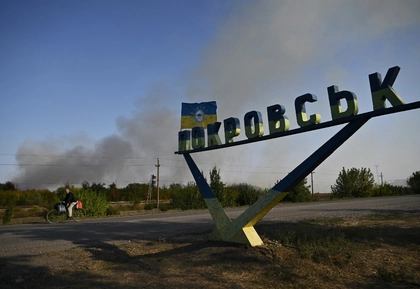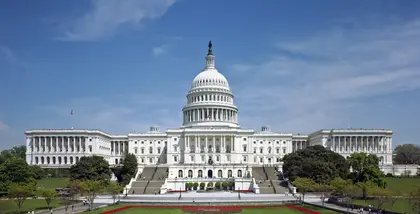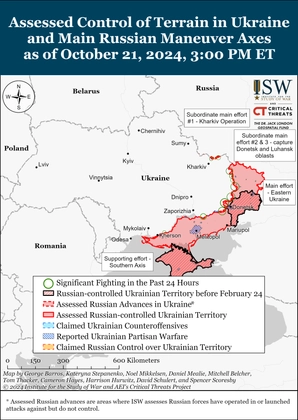Shortly after Ukrainian forces pushed Russian invaders away from Kyiv and Kharkiv last year, pundits and think-tankers were talking about having dealt Russia a “strategic defeat.”
The Russian army was derided as the Keystone Cops, and Putin was sarcastically lambasted as a “master strategist” for having inveighed against NATO expansion, then precipitated the entry of Finland and Sweden.
JOIN US ON TELEGRAM
Follow our coverage of the war on the @Kyivpost_official.
Earlier this year, in the run-up to the first anniversary of the full-scale invasion, Eugene Rumer, the director of the Carnegie Endowment for International Peace’s Russia and Eurasia Program, wrote an essay called “Putin’s War Against Ukraine: The End of the Beginning.”
Rumer opens on a note of triumphalism: “A year into Russian President Vladimir Putin’s war against Ukraine, Russia has suffered a major strategic defeat, Ukraine has achieved a major strategic victory, and the West has demonstrated a combination of resolve, unity, and cohesion that few had expected.” But Rumer quickly settles into a cautiously rational analysis that seems to argue as if stalemate would be the least volatile – and therefore most desirable – outcome.
Less than a year later, Rumer’s tone may have changed – at least in the intro – but the substance remains coldly pragmatic.
On Nov. 16, Rumer, along with Andrew S. Weiss, Carnegie’s vice president for studies, who worked on Russian affairs in both the George H.W. Bush and Clinton administrations, published an op-ed in the Wall Street Journal titled “It’s Time to End Magical Thinking About Russia’s Defeat,” calling for a “transition to a long-term strategy that increases and sustains the pressure on the rogue regime in the Kremlin.”

Frontline Ukraine Cafe Offers Glimpse of Normality as War Rages
All talk of Russia’s strategic defeat has been stuffed in favor of cautious pragmatism such as: “There should be no illusions that any possible combination of short-term steps will be sufficient to force Putin to abandon his war.”
The authors even chastise the triumphalism Rumer had alluded to nine months earlier: “What Western leaders conspicuously haven’t done is level with their publics about the enduring nature of the threat from an emboldened, revisionist Russia. They have indulged all too often in magical thinking – betting on sanctions, a successful Ukrainian counteroffensive or the transfer of new types of weapons to force the Kremlin to come to the negotiating table. Or they have hoped to see Putin overthrown in a palace coup.”
The men who negotiate with Russia
Joining the pragmatist choir of Washington think-tankers are Richard Haass and Charles Kupchan, who wrote an essay together, “Redefining Success in Ukraine,” which appeared in Foreign Affairs on Nov. 17.
Haass and Kupchan are especially worth listening to because they are the “former US officials” who were (and possibly still are) conducting back-channel negotiations with Russia on behalf of US National Security Advisor Jake Sullivan.
Washington will shift into its own version of “strategic thinking,” which is the cynical strategy of all empires: maintain hegemony as far into the future as possible
Haass and Kupchan are basically calling on US and Ukrainian officials to accept what they consider to be a de facto military stalemate and “embrace a new strategy that puts ends and means back into balance” rather than continuing to pursue “a course that has led to a dead end.”
The authors suggest: “Washington needs to take the lead in launching consultations with Ukraine and Western allies aimed at persuading Kyiv to offer a cease-fire in place while pivoting from an offensive to a defensive strategy.”
In other words, they want Ukraine to negotiate a frozen conflict that will allow the United States to taper off its aid.
Although they coat the bitter pill with various sweeteners – no undue pressure to “give up on restoring its 1991 borders or on holding Russia responsible for the death and destruction that its invasion has caused” – Ukrainians will inevitably be disappointed.
Strategic defeat revisited
The United States, for better or worse, is a short-sighted society. Its population is largely ignorant of history, lacking a deep sense of time; and its ruling class is shaped by a goal-oriented frenzy that rarely extends beyond the current election cycle.
In his “The End of the Beginning” essay, Rumer writes: “Having pledged – repeatedly – to support Ukraine ‘as long as it takes,’ the United States and its allies have effectively delegated the task of defining the goals in this war to the Ukrainian leadership.”
But the Ukrainian leadership has repeatedly defined its goals: a return to the pre-2014 borders. Unfortunately, the US doubts that this is achievable with the limited resources they are willing to offer. So, Rumer diplomatically suggests recognizing that “American and Ukrainian interests are not 100 percent aligned.”
As such, Washington will shift into its own version of “strategic thinking,” which is effectively the cynical strategy of all empires: maintain hegemony as far into the future as possible.
The analysts are merely preparing the ground with rationalizations for throwing Ukraine under the bus
In practical terms this means what Rumer and Weiss refer to as “containment.” In their Wall Street Journal op-ed, they write: “A policy of containment today would mean continuing Western sanctions, isolating Russia diplomatically, preventing the Kremlin from interfering in our own domestic politics, and strengthening NATO deterrence and defense capabilities, including sustained US-European reinvestment in our defense-industrial base.”
What this likely means for Ukraine is pressure from Washington to accept a ceasefire and continue as a sort of buffer state between NATO and Russia for the foreseeable future. Ukraine would go through the motions of negotiating, for many years if necessary, while preparing for subsequent flare-ups – much as it did during the Minsk Accord negotiations from 2014 to 2022.
Not a new Cold War
All these pragmatic assessments of strategy and power-balance smack of Cold War great power politics. This is not surprising, since all the major players in the Biden administration’s Ukraine team – National Security Advisor Jake Sullivan, CIA Director William Burns, Deputy Secretary of State Victoria Nuland, and others – cut their teeth in the shadow of Cold War stalwarts such as Henry Kissinger and Brent Scowcroft. And they are all maneuvering as if a war with Russia must be avoided – especially before the upcoming 2024 US presidential elections.
What they either scrupulously ignore or refrain from talking about in polite company is the fact that the United States is already at war with Russia. Not because Washington has declared war, but because Russia has consistently asserted that it is at war with the West – and “no longer a hybrid war but a real one,” as Russian Foreign Minister Sergey Lavrov said in January. This real war is causing untold death and destruction in Europe right now.
What none of these illustrious think-tankers dare consider aloud is that when an adversary claims to be at war with you, then it might be wise – or perhaps merely pragmatic – to take their claims at face value.
Instead, Haass and Kupchan proffer disingenuous advice, suggesting that “Ukraine’s shift from offense to defense would limit the continuing loss of its soldiers, enable it to direct more resources to long-term defense and reconstruction, and shore up Western support by demonstrating that Kyiv has a workable strategy aimed at attainable goals.” The advice is disingenuous because that very shift has already taken place over the summer. The analysts are merely preparing the ground with rationalizations for throwing Ukraine under the bus.
In short, the US and Europe are eminently capable of supporting Ukraine militarily to push Russia back to pre-2022 lines, at the least, if not all the way to the 1991 borders. It would require recognizing that 1) containment is a strategy for cold wars, and 2) this is a very hot war and the West needs to gear up its defense-industrial capacity to win it.
But the US and most of the West still lack the necessary political will. Absent this political will, most US politicians, fearful of losing their positions, prefer to sacrifice Ukraine in the hope – or “magical thinking” – that Russia will be contained, and they cling to the belief that Russia has already been dealt a strategic defeat. Unfortunately, that only applies with a superficial understanding of strategy.
Militaries become better through practice. Russia may appear to be wounded, but it is learning valuable lessons about how to fight a 21st-century war – learning through real combat rather than simulated war games.
The US thought it had defeated the Soviet Union in the Cold War. And although Soviet ideology may have been discredited, Moscow saw the collapse of the USSR and the years of subsequent weakness as nothing more than a tactical retreat.
Putin and his regime clearly believe they can outlast a fickle West, beholden to its superficial comforts and caprices. Because time can never be on the side of those who have such a limited understanding of it.
The views expressed in this opinion article are the author’s and not necessarily those of Kyiv Post.
You can also highlight the text and press Ctrl + Enter






